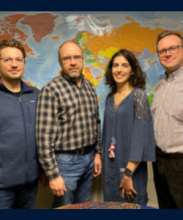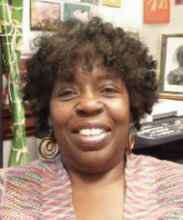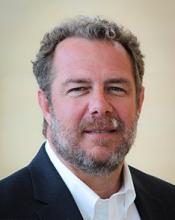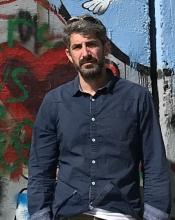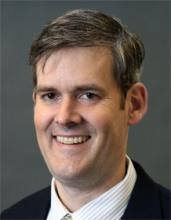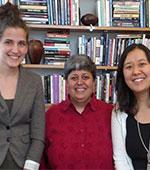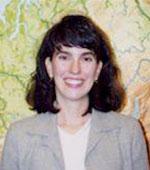To encourage innovation and scholarship, the Social Justice Institute has established a Social Justice Research Fellowship Program that, through competitive grants, funds faculty and student research that advances social justice work, from humanistic inquiry to action research.
Previous grants have supported proposals that focus on issues that are both local and global. From youth development to elderly care; from political systems to individual recovery efforts, these projects have represented the same diversity as their recipients. The Social Justice Institute is proud to support faculty, graduate and undergraduate research over the years.
The following are our Faculty Fellows over the past decade.
2024-2025 Recipients
Culture Change for Climate Change: Community Attitudes and Perceptions of Climate Change
Cassi Pittman Claytor, Associate Professor, Department of Sociology
In collaboration with Cyrus Taylor, Brian Gran, and Ina Martin
Georgetown Professor of Philosophy, Olúfẹ́mi Táíwò contends that climate change will “turn existing forms of injustice into overdrive at every scale of human life”. We aim to promote social justice through this project by working with our neighboring communities, to expedite the development of climate-positive solutions that achieve environmental justice goals. As the first step to collaboration with the community, we orchestrated a focus group study that investigates the attitudes and perceptions of climate change among residents of the predominantly Black communities adjacent to the university, as well as across a range of university stakeholders, including students, faculty, staff, and senior level administrators. This study investigates knowledge and perceptions of climate change and strategies to improve the quality of life for their communities and themselves. The goal of this research is to generate actionable insight to guide community partnerships. Through the generous support of the Social Justice Institute we will finalize our data analysis and report our results in a community event to be held Sat. Oct. 12th at the East Cleveland Public Library during Climate Action Month.
Young Adults' Perceptions of Hemp and Hemp-Derived Cannabinoids: How Blurred Lines Impact Equity in Public Health
Stephanie Pike Moore, Adjunct Instructor, Department of Population and Quantitative Health Sciences, School of Medicine
In collaboration with Craig S. Fryer
The emergence of novel hemp-derived psychoactive cannabis products (e.g., Delta-8, THC-A, THC-P) within the tobacco retail setting represents a growing public health concern. While Ohio legalized cannabis for adult use in 2023, these products notably do not fit within the purview of regulatory oversight because they derive from hemp plants containing less than 0.3% tetrahydrocannabinol (THC), the main psychoactive constituent of cannabis, and are synthesized through a chemical process. Currently, there is no regulatory oversight of production or marketing nor are there any minimum age purchasing requirements for these products at the federal level or in the state of Ohio. Furthermore, for those populations who carry the inequitable burden of tobacco-related health outcomes resulting largely from decades of racially targeted tobacco marketing, the broad availability and marketing of these products may represent a significant parallel. This research seeks to conduct formative research on perceptions of these products among young adults who identify as Black or African American and Hispanic or Latinx in the Greater Cleveland area and Ohio. The primary hypotheses examined through this study include 1) young adults may not be able to distinguish these products from newly legalized cannabis, 2) young adults may perceive these products as appealing and accessible alternatives to those cannabis products available in cannabis dispensaries, 3) young adults may believe these products carry less risk compared to tobacco products, and 4) the same multi-level forms of racism that drive co-use of tobacco and cannabis products will be observed with respect to these products. Findings will be used to inform broader policy or health communication as well as provide the foundation for future research.
2022-2023 Recipients
History of Imprisonment in Ohio
Tim Black, Professor of Sociology
Project collaboration with Vivian Pryor and Paola Van der Linden Costello, Undergraduate Students
Expected outcomes: a complete history of the creation of prisons and jails in Ohio, maps of the locations of these facilities over time, the demographic changes in the prison population over time, and the changes in types of crimes resulting in incarceration in jails and prisons across time. Additionally, expected to identify the key legislative policies that are related to these changes and to visually record them in our historical trajectories and maps.
2019-2020 Recipients
Center for Engineering Action Symposium on Responsible Community Partnerships
Andrew Rollins, Kurt Rhoads, Umut Gurkan, and Lynn Rollins
Center for Engineering Action (CEngA) Leadership Team
Race, Food and Justice 2020: Analyzing the Urban Food Movement through a Social Justice Lens
Shaii White, Former Application Coordinator, Graduate Admissions, Weatherhead School of Management
Sing my Brother, Sing! Say what’s on your mind; Do it with a rhyme! with Dr. David L. Moody
Loretta Laffitte-Griffin, Coordinator, CWRU Cashier's Office
2018-2019 Recipient
Clinician Perspectives on Racial Disparities in Infant Mortality
Marsha Michie, Associate Professor, Department of Bioethics, School of Medicine
Project collaboration with Kavita Shah Arora and Aaron J. Goldenberg
2017-2018 Recipients
Using Photovoice to Capture Diverse Experiences of Cleveland's Opioid Crisis
Lee Hoffer, Associate Professor, Anthropology; Director of Graduate Programs; Professor, Psychiatry, CWRU School of Medicine
Project collaboration with Allison Schlosser
Human Rights Violations in the Occupied Palestinian Territory
Avidan Y. Cover, Professor of Law, School of Law; Associate Dean for Academic Affairs, School of Law
2016-2017 Recipients
In Search Of . . . Smarter and Fairer Approaches to Federal Tax Subsidies
Matthew J. Rossman, Professor of Law
View the research abstract and article here.
Anthropology-Engineering Collaborative (AEC): Designing Interdisciplinary Solutions to Global Health Problems
Janet W. McGrath, Professor and Chair of Anthropology; Associate Professor of International Health, School of Medicine
Andrew Rollins, Professor, Department of Biomedical Engineering, Case School of Engineering, School of Medicine
2015-2016 Recipients
Lost and Found - Collective Identity Recovery through Legacy
Diana Bilimoria, KeyBank Professor, Department of Organizational Behavior, Weatherhead School of Management; Department Chair, Department of Organizational Behavior, Weatherhead School of Management
Project collaboration with Morgan Bulger and Keimei Sugiyama
Forest Hill Neighborhood Study - How Racial and Cultural Affinities Inform Residential Preferences and Considerations of Neighborhood Desirability
Cassi Pittman Claytor, Associate Professor of Sociology
2014-2015 Recipients
The Quest for Rights & Justice in Authoritarian Enclaves
Kelly McMann, Lucy Adams Leffingwell Professor, Department of Political Science
Masculinities, Fatherhood, and Marginalized Urban Communities
Timothy Black, Professor of Sociology
Course Redesign Grant: An Interdisciplinary Engineering-focused Social Justice Capstone
Daniel Lacks, Associate Dean, Academics; C. Benson Branch Professor, Chemical Engineering





